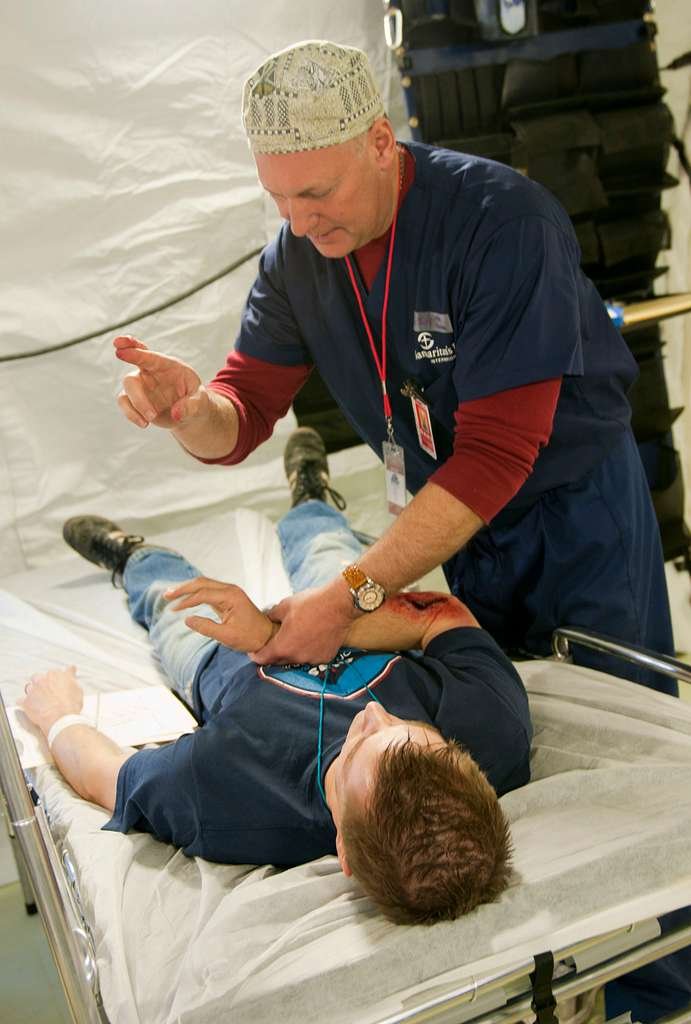Navigating the Spectrum of Acute Agitation: Understanding Causes and Effective Approaches
Acute agitation is one condition that would always cause a doctor or nurse's text page to come up. Most patient's that suffer from acute agitation are usually agitated and not redirectable making it difficult for medical practitioners to get vitals.
In the context of a medical page related to acute agitation, the healthcare professional's primary concerns revolve around the patient's well-being and the safety of the medical staff present. While acute agitation might be misconstrued as sundowning or delirium, it's crucial to recognize that it spans a spectrum, with episodes overlapping various clinical situations.
The case of the agitation as a result of an acute medical illness such as alcohol withdrawal lead to dilerium, Poor control of a pyschiatric condition such as Schizophrenia Armenia, Personality disorders, and it can also be as a result of stress response to an acute illness. So you can see that when you talk about acute agitation, it is a spectrum and would require a thorough, timely medical evaluation.
Attempting to reason with someone experiencing acute agitation is typically ineffective, especially in more severe cases. However, for instances involving stress responses to acute illnesses, timely medical evaluation may not be entirely unnecessary. Patients experiencing acute agitation can be categorized based on etiology, including factors like toxins and medications (such as steroids, anticholinergics), drug withdrawal (e.g., alcohol withdrawal, stimulant intoxication, serotonin syndrome), as well as various medical conditions like encephalitis, meningitis, hyperactive delirium, personality disorders, mania, and acute stress response. Notably, sundowning, alcohol withdrawal, hyperactive delirium, and acute stress response are common triggers for agitation.
When it comes to diagnosis for acute agitation, it is important to consider a lot of things. In the case where the patient have received a hypoglycemic medication such as insulin, then a fingerstick glucose test is required. Thorough review of the patient's med list, and if it is an in-hospital drug abuse (which is a very difficult thing to happen) a urine tox screen can be done. Performing full set of labs such as CBC, metabolic panel, lactase, blood culture is done, also in few cases, where there is seizures or maybe after a neuro surgery, neuroimaging can be done.
When dealing with patients exhibiting acute agitation, preparedness for physical restraints is essential, but restraint use should be reserved for cases where there is a risk of harm to the patient or medical staff. Restraints should never be used for convenience. Swift sedation is key to facilitating proper treatment, with the understanding that effective treatment is contingent on addressing the underlying problem.
Read More
- https://psychnews.psychiatryonline.org/doi/full/10.1176/appi.pn.2019.8a16
- https://www.ncbi.nlm.nih.gov/pmc/articles/PMC6913952/
- https://emj.bmj.com/content/20/4/339
- https://www.uspharmacist.com/article/clinically-significant-acute-agitation-consensus-update
- https://www.ncbi.nlm.nih.gov/pmc/articles/PMC8582771/
- https://www.hhs.texas.gov/sites/default/files/documents/doing-business-with-hhs/provider-portal/facilities-regulation/psychiatric/acute-agitation-treatment-reference.pdf


Thanks for your contribution to the STEMsocial community. Feel free to join us on discord to get to know the rest of us!
Please consider delegating to the @stemsocial account (85% of the curation rewards are returned).
Thanks for including @stemsocial as a beneficiary, which gives you stronger support.